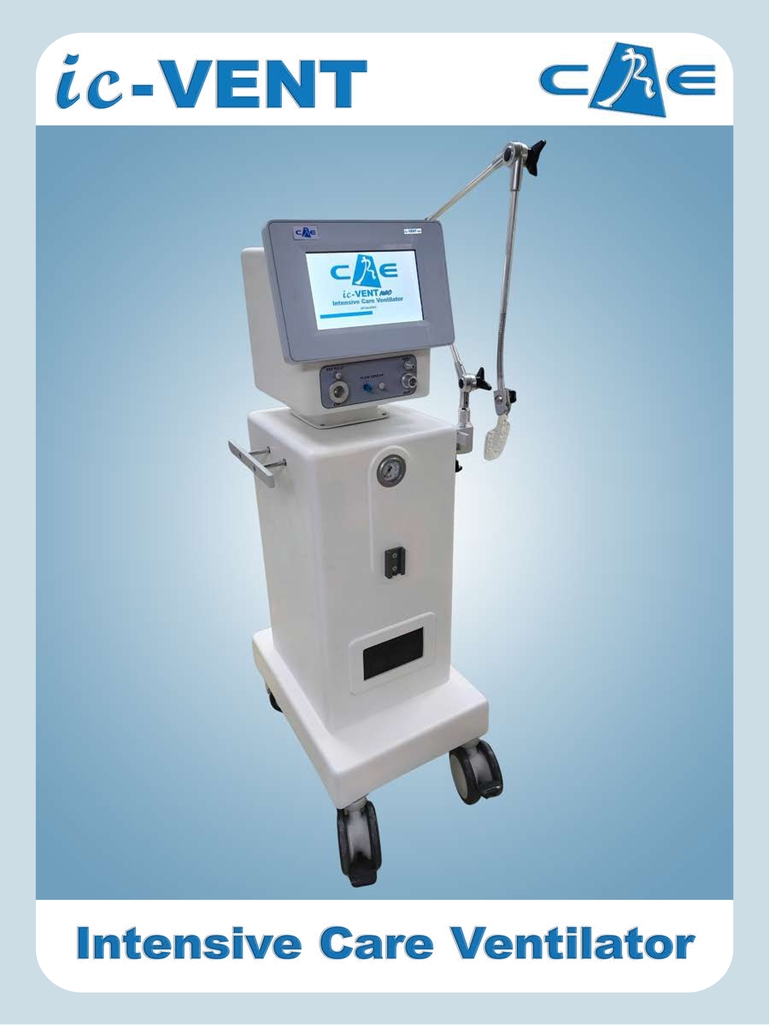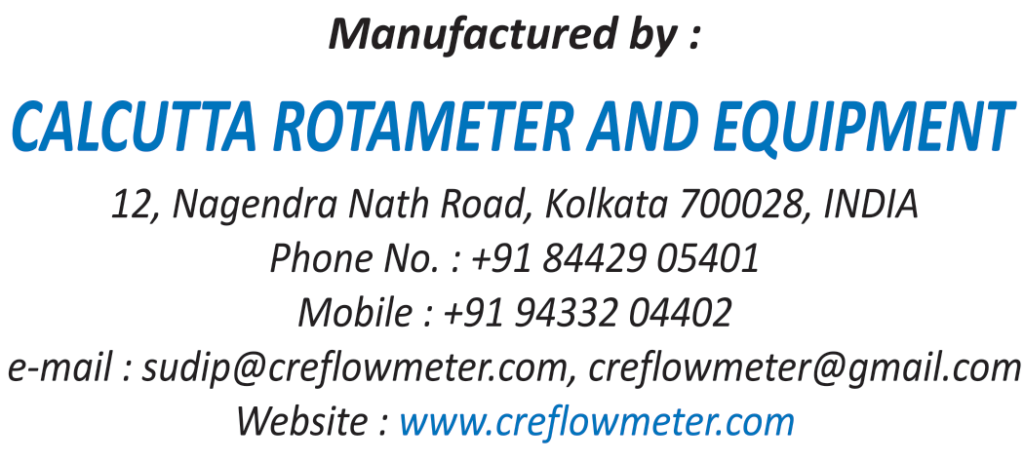ic-VENT (INTENSIVE CARE VENTILATOR)
Standard Specification:
- Ventilation modes : PC(SIMV), PC(AC), PC(CMV), PSV, VC(SIMV), VC(AC), VC(CMV), PRVC, VSV, BPAP.
- Emergency mode for quick ventilation startup.
- Maneuvers : Inspiratory Hold, 100% FiO2 Boost.
- Tidal Volume: 10~100mL (neonate), 50~300mL (paediatric), 200~1500mL (adult).
- Frequency: 1~60 b.p.m.
- I:E Ratio: 10:1 to 1:10 in 0.5 increments.
- Pressure trigger : -3~19 cm H2O.
- Electronic PEEP hold : 0~20 cmH20.
- Monitoring : PIP, PEEP, P(mean), P(plat.), R.R., I:E, FiO2, Trigger, C(dyn.), C(stat.), MV(i), MV(e), VT(i), VT(e).
- In-built FiO2 monitor with digitally adjustable FiO2 setting range of 21~100%.
- Waveforms : Pressure vs. Time, Flow vs. Time, Volume vs. Time.
- Loops : Flow vs. Volume, Volume vs. Pressure.
- Alarms : Oxygen supply failure, Air supply failure, Mains supply Failure, Low and High MV, VT, PIP, PEEP, R.R., FiO2, Probable alarms (Airway blockage, Cuff leak, Patient disconnection) & Apnea detection.
- Accurate display of inspiratory and expiratory volumes using proximal flow sensor.
- Automatic change of alarms settings for high and low values when ventilation parameters are changed.
- Self diagnostic feature during startup along automatic oxygen sensor calibration.
- 72 hours of patient and ventilation data records.

Ventilator Specifications:
- Ventilation modes : PC(SIMV), PC(AC), PC(CMV), PSV, VC(SIMV), VC(AC), VC(CMV), PRVC, VSV, BPAP.
- Emergency mode for quick ventilation startup.
- Maneuvers : Inspiratory Hold, 100% FiO2 Boost.
- Tidal Volume: 10~100mL (neonate), 50~300mL (paediatric), 200~1500mL (adult).
- Frequency: 1~60 b.p.m.
- I:E Ratio: 10:1 to 1:10 in 0.5 increments.
- Pressure trigger : -3~19 cm H2O.
- Electronic PEEP hold : 0~20 cmH20.
- Monitoring : PIP, PEEP, P(mean), P(plat.), R.R., I:E, FiO2, Trigger, C(dyn.), C(stat.), MV(i), MV(e), VT(i), VT(e).
- In-built FiO2 monitor with digitally adjustable FiO2 setting range of 21~100%.
- Waveforms : Pressure vs. Time, Flow vs. Time, Volume vs. Time.
- Loops : Flow vs. Volume, Volume vs. Pressure.
- Alarms : Oxygen supply failure, Air supply failure, Mains supply Failure, Low and High MV, VT, PIP, PEEP, R.R., FiO2, Probable alarms (Airway blockage, Cuff leak, Patient disconnection) & Apnea detection.
- Accurate display of inspiratory and expiratory volumes using proximal flow sensor.
- Automatic change of alarms settings for high and low values when ventilation parameters are changed.
- Self diagnostic feature during startup along automatic oxygen sensor calibration.
- 72 hours of patient and ventilation data records.

